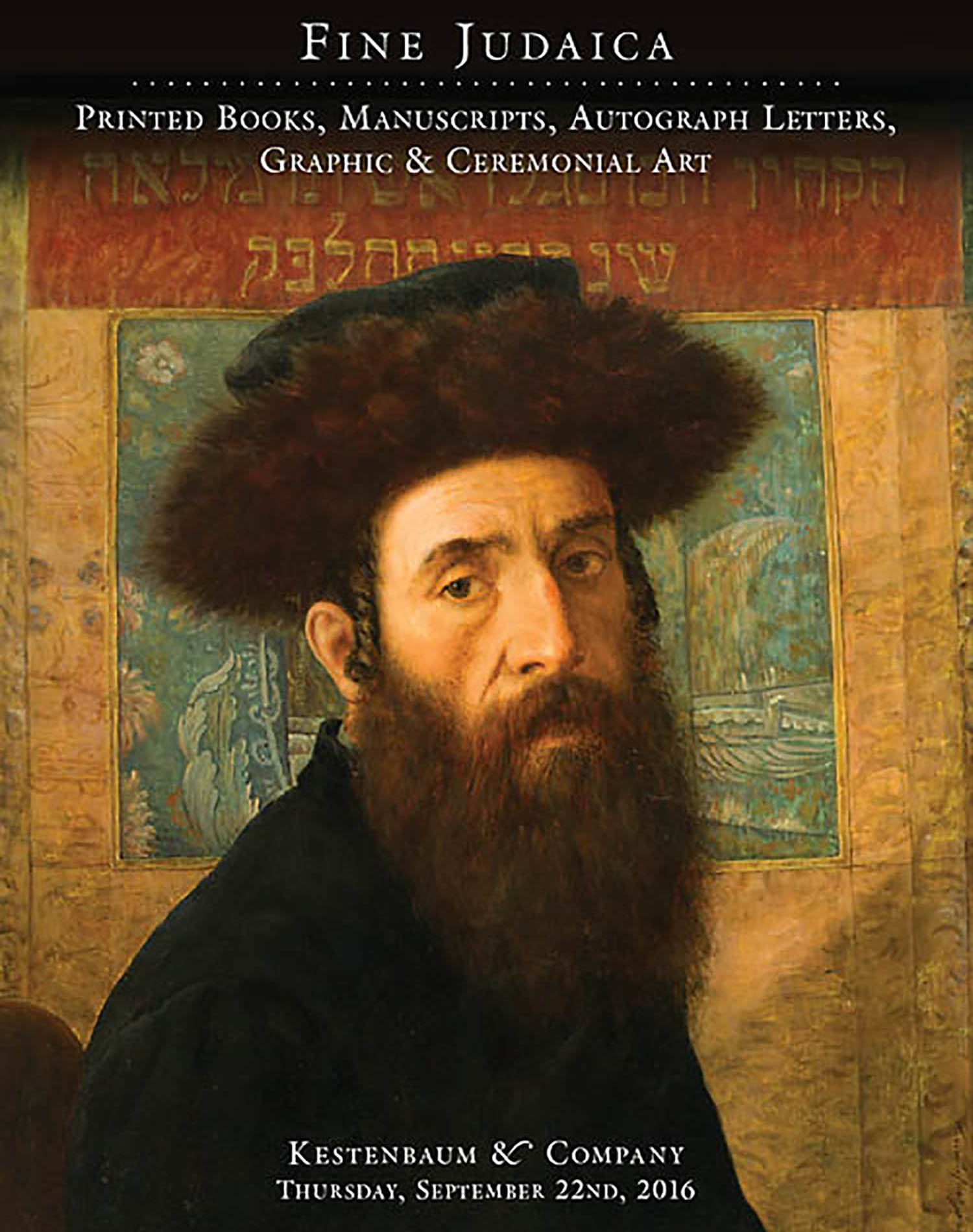Providencia de Dios con Israel. Enternidad de la Ley de Mosseh y Nulidad de las de mas Leyes. Compuesto por el muy Sapientissimo H.H. Saul Levy Morteyra.

AUCTION 70 |
Thursday, September 22nd,
2016 at 1:00
Fine Judaica: Printed Books, Manuscripts, Autographed Letters, Graphic and Ceremonial Art
Lot 132
MORTEIRA, SAUL HALEVI.
Providencia de Dios con Israel. Enternidad de la Ley de Mosseh y Nulidad de las de mas Leyes. Compuesto por el muy Sapientissimo H.H. Saul Levy Morteyra.
Amsterdam: 1705
Est: $20,000 - $25,000
PRICE REALIZED $20,000
<<A Regal Manuscript of Rabbi Saul Morteira’s Magnum Opus: “Treatise on the Truth of the Law of Moses.”>>
Saul Levi Morteira (c.1596-1660) was born in Venice, where he studied under Leone (Judah Aryeh) Modena. He spent five years in Paris at the court of Queen Marie de Medici, as secretary to the Queen’s personal physician, the Marrano Elijah Montalto. In 1616, Morteira accompanied Montalto’s body to Amsterdam for Jewish burial, there he would remain, serving as Rabbi of the Spanish-Portuguese community for the next forty-five years.
This beautifully composed manuscript is one of four produced by the scribe Michael Lopez (Pinto) of Morteira’s polemical masterpiece. Lopez produced copies of this work in 1703, 1705, 1706 and 1719. All were produced in Amsterdam, but it is not clear for whom the texts were made.
Morteira’s work is a bold critique of Christianity and a vindication of the truth of Judaism and the continued choseness of the Jewish people. A work of this nature would undergo heavy censorship were it to have been published, however in manuscript form, this radical critique of both Catholicism and Calvinsim could circulate quietly without attracting unwanted attention.
Having lived throughout Europe, Morteira draws on his intimate knowledge of both Catholic and Protestant theology, practice and attitudes in his critique. He does not mince words or use euphemisms, but takes aim at his theological targets referring directly to “Christianos” and the followers of “Calvino.” Reflecting first-hand experience, he makes references to blood libels and passion plays and the accusations hurled against Jews as “Christ-killers.” One may sense the rhetorical freedom that Morteira had, writing this work in manuscript form and thus liberated from self-censorship.
That there are additional copies of this work suggest that members of the Spanish and Portuguese community also delighted in and sought wisdom from this frank theological text. Scholars believe that the interest in this treatise followed the internal debates among Western Sephardim about Spinoza’s challenge of the Divinity of the Torah and rejection of Divine Providence. While Spinoza was Morteira’s student and it was Morteira who was a part of the Beth Din that excommunicated him, this text does not address Spinoza’s ideas directly. This is a work born of the wars of religion, to which Morteira eloquently makes direct reference to in his introduction, and the experience of crypto-Jews finding their (often tortured) way back to Jewish life. Morteira writes in order to strengthen his fellow Jews in their belief as they pass through a world which is a “chaos of confusions.”
The colophon provides a brief summary of the essential argument, closing with a personal expression of thanksgiving: Bendito sea su Santo nombre. Dios que me consediste salud y vida para acabar de escrivir este libro. Te suplico me la prestes para emplearla en cozas de tu Santo servicio. (“Blessed be His Holy Name. God who gave me health and life in order to finish composing this book. I implore You that you lend me [life] in order to employ it in acts of your Holy service.”)
<<An important manuscript of tremendous beauty, written with great clarity of penmanship and featuring intricate decorative designs throughout.>>
For a similar Morteira manuscript, see Kestenbaum & Company Sale 39, lot 342.
With grateful thanks to Ronnie Perelis, Professor of Sephardic Studies, Yeshiva University, New York, for his comprehensive assistance in researching and describing this manuscript.
